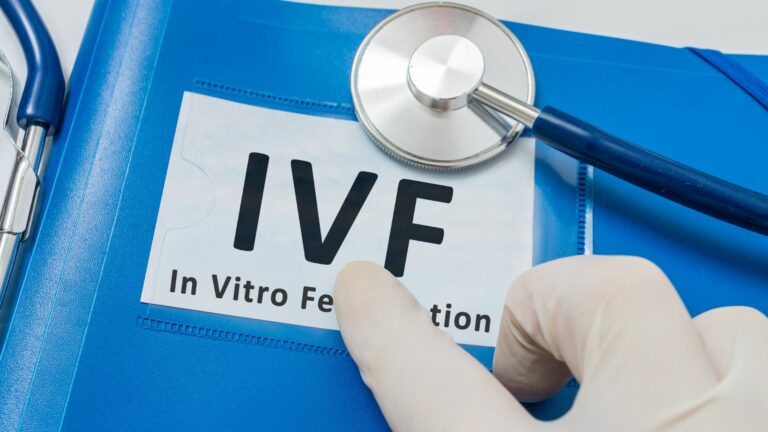
“Upon achieving a successful IVF cycle, a moment filled with immense joy and relief, several immediate costs arise that one must face.
Although daunting, gaining an understanding of these imminent expenses before they occur can help couples prepare and offers a degree of financial control.
Unpacking Immediate Post-IVF Expenses
Follow-up Appointments and Ultrasounds
The moment the pregnancy test is positive, the journey is far from over. As a crucial next step, your doctor will schedule follow-up appointments.
These appointments help monitor your progress and undertake ultrasounds to ensure the continued health of your developing baby.
Regular examinations and ultrasounds, though essential, come with a cost that can vary significantly based on your clinic and insurance coverage.
For a detailed rundown on what to expect, visit our page on what to expect after IVF.
Pregnancy Medications
A successful pregnancy requires a well-maintained hormonal balance, crucial for the development of the fetus. Subsequent to a successful IVF cycle, your body may need supplemental pregnancy hormones, primarily progesterone and occasionally estrogen.
These essential medications, although an added expense, work to support early pregnancy and increase the likelihood of a successful, full-term birth.
You can learn about these necessary medications and their involvement in the IVF process on our website.
Blood Tests and Monitoring
Routine blood tests are valuable tools in early pregnancy monitoring since hormone levels can provide important insights into your pregnancy’s health.
Blood tests can help track your pregnancy hormones and give advance warnings of potential complications.
Like follow-up appointments, the costs for these tests and monitoring services will vary based on your healthcare provider and insurance coverage.
Remember, the goal of these tests is to ensure a safe and healthy pregnancy. Visit our page on the IVF process to know more about these tests.
Frozen Embryo Storage
As part of your IVF journey, you may end up with more viable embryos than needed for a single transfer.
If this is your case, you might decide to cryopreserve (freeze) these embryos for future use, representing another common, though often unforeseen, cost of IVF.
The annual or ongoing costs of storing these embryos is necessary to consider when budgeting for your post-IVF expenses.
In conclusion, understanding these immediate expenses can help you navigate your budget and allow you to focus on the joy of a successful IVF cycle.
In the next section of our comprehensive guide to ‘Navigating Financial Costs after a Successful In Vitro Fertilization,’ we will explore potential additional costs, such as those associated with failed embryo transfers and multiple births. Stay tuned to gain further insights!”
Understanding Possible Additional Costs
While a successful IVF marks an extraordinary moment of triumph, it’s important for couples to be mindful of additional costs that may arise down the road.
These unforeseen expenses can impact your financial planning, making it essential to consider them as part of your broader financial strategy.
Costs If the First Transfer Fails
It’s a harsh reality that not all embryo transfers result in a successful pregnancy. In the event of a failed transfer, you may be faced with the decision to attempt another cycle.
This decision comes with its own set of costs, including a new embryo transfer and possibly further diagnostic testing to determine potential causes for the failure.
The cost can also depend on whether you’ll be using donor sperm or donor eggs for your subsequent IVF attempts.
While emotionally challenging, knowing these possibilities allows you to align your financial reality with your family goals.
For support and guidance through this difficult experience, please visit our page on coping with IVF failure.
Costs Associated With Multiple Births
The possibility of multiple births, such as twins or triplets, is higher with IVF, especially when multiple embryos are transferred.
While the thought of having more than one baby may sound appealing, it’s crucial to consider the significant increase in prenatal care costs, potential for a longer hospital stay, and the likelihood of neonatal intensive care if the babies are born prematurely or with health issues.
Moreover, the costs associated with raising multiples can be unexpectedly high, so financial preparedness for this scenario is key.
In the final installment of our guide on ‘Navigating Financial Costs after a Successful In Vitro Fertilization,’ we will focus on various financial strategies and resources at your disposal.
By understanding these strategies, couples can proactively manage the financial implications of IVF-related costs. Stay with us as we delve into how to streamline your financial strategies in the subsequent section of this guide.
Streamlining Financial Strategies
Managing the financial commitment required post a successful IVF treatment can seem overwhelming.
However, a well-thought-out financial strategy can alleviate much of the associated stress, ensuring that financial constraints do not overshadow the joy of growing your family.
Financing Options
There are a variety of financing options specifically designed for couples undergoing fertility treatments.
These range from IVF-specific loans with flexible repayment options ideal for spacing out payments over time, to grants and scholarships offered by organizations dedicated to helping with fertility treatment costs.
Furthermore, medical credit lines are available for those unforeseen expenses, providing a welcome monetary buffer.
Whichever option or combination of options you choose, it is vital to thoroughly compare terms and interest rates. You might find more useful details within our IVF cost guide.
Maximize Your Insurance Coverage
Understanding and maximizing your insurance coverage can significantly reduce out-of-pocket expenses. Before proceeding with any further treatments or tests, obtain pre-authorization from your insurer to confirm what is covered.
Also, explore any out-of-network benefits you might have, as they can still result in significant savings. Navigating insurance options can be complex, so utilize our FAQs for more information on IVF and insurance coverage.
Proactive Budgeting and Tracking Expenses
Starting a budget early can make a world of difference. Setting aside funds before the initial IVF treatment can lessen the impact of post-treatment costs.
Keeping a meticulous record of all expenses not only helps in managing your financing but can also help pinpoint opportunities to reduce costs.
Consider consulting with a financial advisor specializing in fertility treatments, who can provide tailored advice for your situation. To assist with budgeting, try out an IVF cost calculator available on our website.
Conclusion
While financial planning is crucial in your IVF journey, it is merely a facet of the larger picture. Through proactive planning and available resources, the financial pressures associated with IVF can be managed, allowing the joy and fulfillment of starting a family to shine through.
Embrace the support of those who have walked this path before—there are vibrant support systems, including forums and support groups for individuals navigating these financial challenges. Visit our page on budgeting for IVF for further insights and encouragement.






